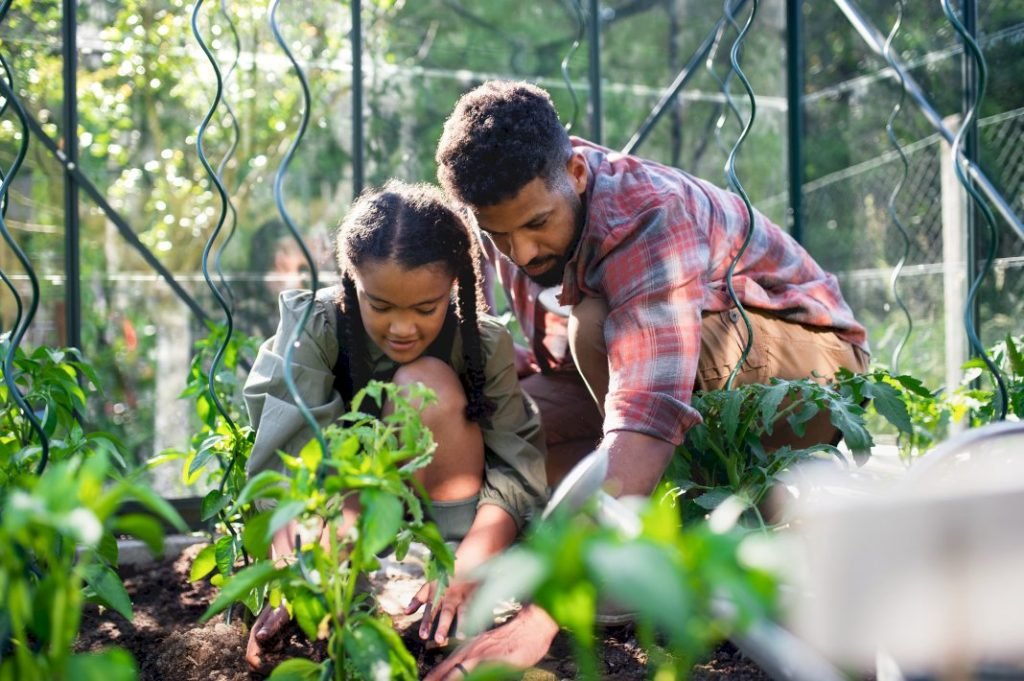- Research local agricultural laws to understand regulations and avoid hefty fines.
- Prepare the garden for optimal production and safety by assessing soil quality and removing weeds and pests.
- Plant appropriate crops that grow best in the region’s climate and are popular with consumers.
- Implement proper maintenance techniques such as watering, weeding, fertilizing, pruning, harvesting, and record-keeping.
- Invest in a greenhouse for year-round production or to extend the growing season.
Vegetables are essential to a healthy diet and have become increasingly popular in the food industry. As awareness grows about the importance of consuming nutritious, plant-based foods, more people are turning to vegetables as their primary source of nutrition. Vegetables provide an array of essential vitamins and minerals that support optimal health and wellness. In addition, vegetables are naturally low in fat and calories, making them an ideal choice for individuals trying to maintain or lose weight.
The increasing demand for vegetables has been driven primarily by health-conscious consumers who recognize the importance of getting enough essential micronutrients from their diets. Eating various fresh fruits and vegetables daily is associated with a lower risk of chronic diseases such as cancer, heart disease, stroke, type 2 diabetes, obesity, and high blood pressure.
Given these benefits associated with eating more vegetables, it is understandable why there has been an increase in demand for locally-grown produce within the food industry. Starting a small vegetable business from home is one way to capitalize on this trend while helping others eat healthier meals at home too! Here are a few tips to help you get started:
Research Local Agricultural Laws
Starting a small vegetable business from home requires thoroughly researching local agricultural laws. This is because many states have specific regulations that must be followed by those wanting to operate a farm or sell produce commercially. Entrepreneurs may face hefty fines and other penalties without researching and understanding the applicable laws.
The research should include requirements around the types of crops that can be planted and sold, safety protocols, manure and fertilizer use, food safety guidelines, pesticide management, harvesting protocols, storage requirements, packaging standards, labeling rules, and more. Additionally, businesses selling produce may need to register with the state’s Department of Agriculture or obtain a license before beginning operations.
Entrepreneurs can ensure they comply with all applicable regulations by researching local agricultural laws before starting a small vegetable business from home. Complying with rules reduces risk and keeps farmers and consumers safe from potential health hazards associated with food contamination or other issues related to improper growing techniques.
Prepare the Garden

Starting a small vegetable business from home requires correctly preparing the garden. Not only will this help boost production, but it also provides that all produce is safe to consume. Taking the time to prepare the garden before planting vegetables can significantly improve efficiency and quality control.
Assess Soil Quality
The priority when preparing a garden should be assessing soil quality. This involves determining the nutrients and ensuring an adequate supply of essential minerals for optimal plant growth. If deficiencies are detected, amendments such as fertilizers should be applied to enrich the soil for plants to thrive. Additionally, testing the soil’s pH level can provide helpful information about how acidic or alkaline the environment is and if any further adjustments need to be made for specific plants.
Remove Weeds and Pests
Weeds and pests can significantly reduce yields if left unchecked, so removing them from the garden before planting begins is essential. Hand-weeding or mulching are effective methods for managing weeds, while natural pest repellents such as garlic spray or neem oil can keep insects away. Additionally, farmers may want to consider companion planting techniques involving planting certain species together to enhance growth or discourage pests from attacking their crops.
Plant Appropriate Crops
Once the soil has been assessed and pests have been eliminated, it is time to start selecting what type of vegetables will be planted in the garden. When picking out crops, entrepreneurs should consider what grows best in their region’s climate and what products are most popular among consumers in their local area. Additional research on crop rotation practices may also need to be conducted if growers plan to cultivate more than one variety of vegetables over multiple seasons.
Implement Proper Maintenance Techniques
Finally, proper maintenance techniques must be employed throughout the season for vegetables to mature without any issues fully. This includes regular watering, weeding, fertilizing, pruning, staking taller plants (if necessary), harvesting at peak times, and using cover crops between harvest cycles (to prevent nutrient depletion). Additionally, keeping detailed records and tracking progress throughout each stage helps farmers stay organized and evaluate performance over time so they can make needed adjustments when necessary.
Invest in a Greenhouse

Running a business requires year-round production to stay competitive in the market. This is where investing in a greenhouse comes into play. Greenhouses provide an ideal environment for growing vegetables without worrying about inclement weather or temperature fluctuations that could negatively impact yields and profits. Additionally, greenhouses can be used to extend the growing season, allowing farmers to cultivate unique varieties of fruits and vegetables not available during certain months or harvest multiple crops in one year.
A Quonset greenhouse can be more cost-effective and less time-consuming than a traditional wooden frame structure. It can be installed in a short amount of time and withstand harsh weather conditions.
For those wanting to maximize profits, an automated irrigation system or hydroponics setup can help minimize water usage and optimize yields even further.
Final Thoughts
By following the tips above, entrepreneurs can successfully start a small vegetable business from home and enjoy the many rewards that come with it. Not only will they be able to produce nutritious fruits and vegetables for their local community, but they will also have the opportunity to make a sustainable income while improving their health!